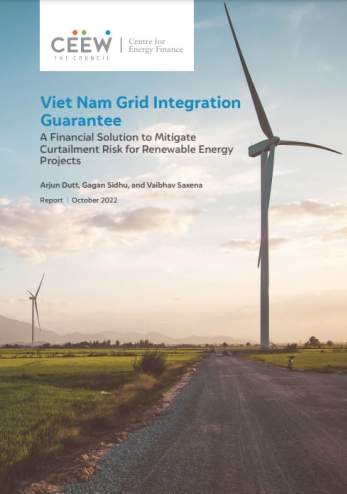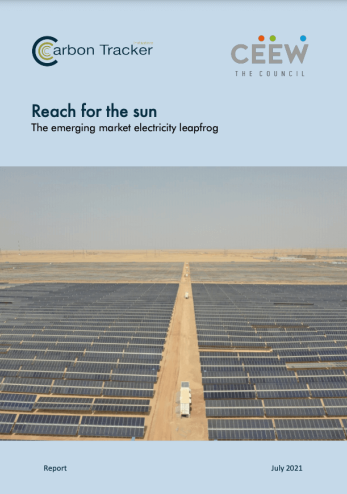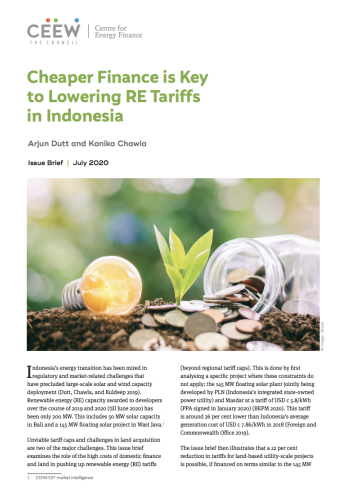Report
Deepening Renewable Energy Markets in South Africa
Lessons for and from the Indian renewable energy market
Manu Aggarwal, Kanika Chawla
June 2019 | Emerging Economies, Sustainable Finance
Suggested Citation: Aggarwal, Manu, and Kanika Chawla. 2019. Deepening Renewable Energy Markets in South Africa: Lessons for and from the Indian renewable energy market. New Delhi: Council on Energy, Environment and Water.
Overview
This report, part of a series which assesses the obstacles to the flow of capital into renewable energy markets in emerging economies, investigates risks considered important by stakeholders in South Africa’s renewable energy market. It follows up a previous study, which found five types of risks prevalent in emerging economies: demand, transmission and evacuation, macro, offtaker (purchaser of RE), and political.
This report also identifies opportunities for collaboration and facilitates cross-country learnings in a scenario where most countries are undergoing an energy transition, which is non-homogenous. Both India and South Africa have taken several initiatives in the last two decades to reform their energy systems. Emerging economies, however, cannot attempt to replicate the advances made in more developed economies. The report also recommends steps that would enable faster growth of the renewables market in South Africa and India.
Key Findings
- Investors in South Africa did not consider demand risk to be an issue. Similarly, independent power producers (IPPs) in India do not consider demand risk in a developing project.
- Stakeholders in both countries argue that clauses such as take-or-pay and the minimum offtake guarantee mitigates demand risks.
Risks plaguing both South Africa and India
- Political and policy risks such as delays in obtaining timely clearances.
- Offtaker risks such as affordability concerns.
- Transmission and evacuation risks (including pre-connectivity risks), such as unavailability of transmission lines at predictable prices in a timely manner.
Key Recommendations
What could India learn from South Africa?
What could South Africa learn from India?
- Provide a clear pipeline of projects and follow a predetermined tendering schedule.
- Take a strategic view on the trade-off between domestic manufacturing and low-cost deployment.
- Abolish the requirement of regulatory approval for refinancing and change in ownership.
- Provide counterparty diversification opportunities.
- Develop local and competitive engineering procurement construction (EPC) companies.
- Provide support in pre-project development.
Recommendations for faster growth of RE markets in South Africa
- Provide policy certainty and a clear pipeline of projects.
- Start building transmission infrastructure in the Northern Cape.
- Provide support to independent power producers (IPPs) in pre-project development.
- Liberalise restrictions on refinancing and acquisitions.
- Government, not IPPs, should provide for social support.
- Support the development of domestic engineering procurement construction (EPC) companies.
- Take a strategic view on the trade-offs between manufacturing and deployment immediately.
- Make distributed renewable energy (DRE) a central piece of the renewable energy mix in South Africa.
Scaling up renewable energy depends on variables such as domestic targets, topography, resource endowment, and the political system.






